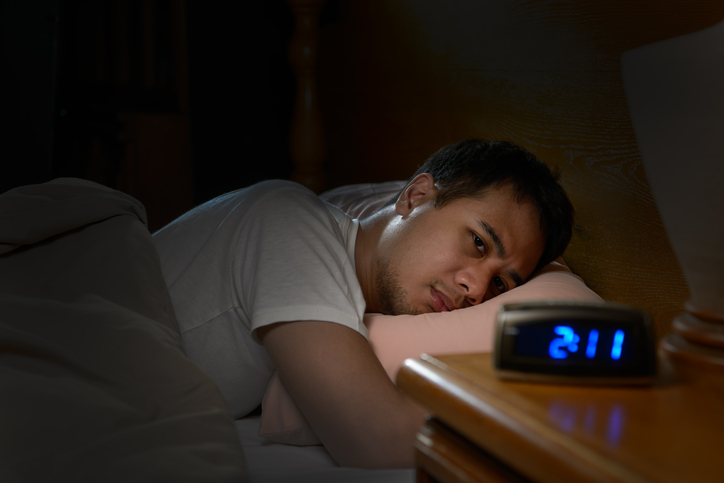Whether you are black, white, asian or green, we all need a sufficient amount of sleep to stay healthy. Scientist work relentlessly to understand the true role of sleep, but research shows certain processes only take place when we are asleep. Have you ever wondered what would happen if you didn’t sleep at all for a whole week? I do not suggest trying to find out, but I will give you a hint…psychiatric ward here we come.
Life already has enough challenges, so why add the extra challenge of a lack of rest? If you think you will gain an advantage by sleeping less, then you are living with a false sense of security. There is truth in the saying ‘ the early bird gets the worm’, but the early bird gets the worm because it acquired a sufficient amount of rest the night prior.
So what exactly does a sufficient amount of rest mean? This blog article will address that question and explain why sleep is important to your overall health and how you can get better sleep.
Why Sleep Is Important
Before jumping into the why, let’s take a look at the how. How does the body respond to sleep, specifically, what does the brain think about sleep?
The Brain and Sleep
We all have learned or at least heard about how the brain controls everything we do from breathing to scratching our noses. The brain is the most complex organ in our bodies and has the responsibility to ensure the rest of the body functions properly. It is due to this responsibility that the brain needs to rest at certain times, so that it can perform its duties effectively.
When we go to sleep the brain has time to internally process old and new information without the disruption of external influences. It is able to distribute this information to the appropriate faculties within the brain, so that when we wake up we are ready to take on the next days challenge.
The brain is still indeed a mystery and there are a lot of questions on how the brain truly works and why sleep seems to be a requirement for proper brain functionality. In fact, research has found that a lack of sufficient sleep reduces our ability to concentrate, think logically and to remember.
There really is no magic number to how much sleep is required, but research indicates the average adult functions efficiently with 7-9 hours of uninterrupted sleep. However, the main objective when it comes to sufficient rest is being able to reach the third stage of non-REM, which is considered the deepest sleep stage.
Non-REM Stages
Non-REM stands for (non rapid eye movement) and has three stages. The first two stages occur when we are beginning to fall asleep or when we have just fallen asleep, but are in a light sleep state respectively. These stages occur when we take a quick nap or inadvertently fall asleep during a boring lecture, thus, the brain does not begin proper information distribution during these stages. Proper information distribution begins during the third stage of non-REM, which then transitions to the REM (rapid eye movement) stage.

The Why
As previously mentioned, the third stage of non-REM is when the brain is relaxed enough to begin processing important information. This information is then used to figure out what needs to be done in other parts of the body such as muscle repair, cellular growth or developing a stronger immune system.
In other words, the reason we need a sufficient amount of sleep is for an overall healthy reflex to a multitude of challenges the body and brain will face at any given time. We enhance a healthy reflex by entering the third stage of non-REM, which gives the brain time to develop effective methods for plasticity and mental cognition.
Plasticity and Mental Cognition
Plasticity refers to how quickly an individual’s body and mind are able to adapt and survive in rapidly changing environments. It allows the brain to develop from infancy to adulthood and helps us recover from traumatic experiences such as brain injuries, depression and anxiety.
Sufficient sleep promotes plasticity, which in turn helps us adapt to mental and physical challenges. For example, boxing champion Floyd Mayweather fought against the best the ring had to offer and defeated every last one of them. How was he able to do it?
It was due to his plasticity. Mr. Mayweather was able to analyze each of his opponents fighting styles and thus, was able to physically and mentally adapt to differing confrontations. Not only was he able to physically adapt, but his plasticity helped him mentally adapt, which is the cognitive aspect of sufficient sleep.
Your cognitive abilities are the quintessential attributes of sufficient sleep. The brain is full of an assortment of sundry networks that establish one’s cognitive abilities , but a lack of sufficient sleep reduces cognitive network potentials. Additionally, cognitive abilities are also needed during sleep for the acquisition of knowledge and the manipulation of information.
These functions allow the brain to properly disseminate pertinent information throughout all biological networks, which helps promote reasoning, healing, pain alleviation and a plethora of other health factors within the body and mind. Therefore, it is important to know how to get a good night’s sleep.
How To Get Better Sleep

Getting a good night’s rest isn’t as easy as it sounds, especially if you have bad sleeping habits. That’s right, bad sleeping habits will have you counting sheep for hours and praying to get at least 2 hours of sleep.
However, there are a number of things that may contribute to a lack of rest besides having bad sleeping habits such as having an irregular sleep schedule, sleep apnea, stress, mental health issues or a grossly snoring partner.
Nevertheless, there are ways to reach that elusive third stage of non-REM to get a good night’s rest, so let’s take a look at 5 devices that can help you sink into a deep sleep.














